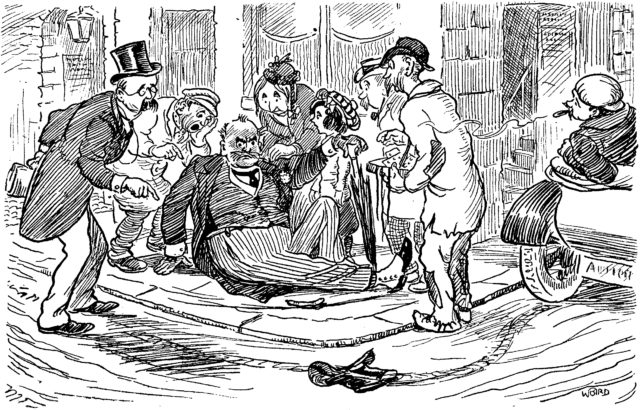
I was facilitating a one-day workshop for 24 college presidents. At the start, we agreed to follow six covenants, including the freedom to ask questions at any time, and a commitment to stay on schedule. Our program was tight and college presidents are not known for their brevity, and I was feeling somewhat apprehensive about the group’s ability to honor the latter covenant.
During our opening roundtable sharing, everybody heroically tried to stop when their time was up, but we were still running late when, at the end of one participant’s contribution, someone I’ll call Q said, “Can I ask a question?”
All eyes turned in my direction. Conflicted and flustered, I blurted out: “No.”
Everyone laughed. My self-contradiction was funny—in the same way that seeing someone slipping on a banana peel is funny.

Q then asked his question anyway, which was the right thing to do. Why? Because both the question and the answer that followed were brief, and then we were on our way again. It was a challenge, but with the participants’ help we stayed on schedule for the rest of the day.
What I learned from this collision of agreements
This was an interesting learning experience for me for three reasons. I learned that:
- A preoccupation with a long-term process goal (keeping a program on schedule) can lead me to try to block a short-term need (getting a question answered).
- I can trust participants who respect the covenants we’re using (Q saw a contradiction and rightly asked me what was appropriate for him to do) to do the right thing.
- I am far more capable of dealing with potentially embarrassing situations than I used to be. (The moment I realized that my aim to keep the event on track wasn’t threatened, the experience became funny to me too. In the past, I would have remained feeling uncomfortable for a while about “losing control”.)
I suspect it’s impossible to have a set of covenants that won’t occasionally clash—and I think that’s a good thing.
A Taoist might say that tension between opposites illuminates the underlying core. In this example, I was attempting to balance the success of the overall experience with the needs of the moment. There’s no “right” answer. After all, too many delaying questions could have disrupted the workshop flow and reduced the value of our time together. Awareness of the potential contradictions helped me to focus on a key aspect of the day’s work.
Noticing and responding as best one can to such tensions is necessary and valuable in the moment of facilitation. And, as a bonus, sometimes the outcome of a collision of agreements is amusing too.
Photo attribution: Flickr user manc72
